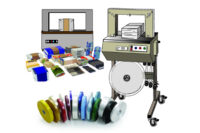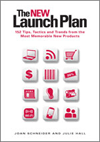Many industries look to improve production and cut material costs by using banding material. The perks of banding are many: the equipment is compact with a small footprint and can be moved around easily. It can also be incorporated in production lines to speed output. Banding machines wrap a strip of paper or film around your product, insuring unitization at a lower cost than a bag, a box or a chip board sleeve. When stacks are ready to be bundled, they are placed in the bander, at which point a sensor will detect the bundle and a band would be automatically wrapped around it, all done in a very environmentally friendly process.
Unfortunately, after a customer researches and purchases a piece of equipment and the necessary paper or film banding for their application, most purchasing managers/buyers find themselves single-sourced. The pursuit for a quotation from conventional packaging professionals is fruitless because of their lack of knowledge in that area or their inability to submit the necessary samples consisting of narrow-width rolls needed for evaluation. Therefore, little to no marketing or promotion reaches the eyes of finishing, production or purchasing managers. As a result, overseas sources hold a virtual monopoly on the pricing.
In addition, most traditional packaging distributors offering conventional packaging material (foam, corrugated, and Jan/San products, etc.) don't have the converting capabilities to provide these films or paper, so they don’t offer them. Only a rare combination of distributors/converters can enter this market. Very expensive slitting equipment is required to slit the paper to the required narrow- width rolls. As for slitting film, it is even more difficult because of the need to keep uniform tension control throughout the rewinding process to produce perfect rolls that will machine smoothly on the various types of equipment in operation. All of the advantages of direct domestic supply are contingent upon the consumables working with the foreign banding equipment.
The pricing for the overseas banding material isn't stable; rather, it's whatever the market can bear. Most high-profile, large users buying pallet quantity are paying much higher prices compared to what they would pay for a domestic equivalent product. If the customer happens to be a small one- or two-case user because of their low-volume needs, the pricing is exorbitant. Since there is very little competition, distributors for the overseas material are simply not motivated to lower their prices.
Different domestic suppliers can offer different programs. Three key considerations to look for:
- US-made, US-supplied consumables. A US-made product ensures readily available stock that’s not subject to overseas transportation costs or possible delays.
- Stable pricing can be achieved with contracted blanket orders and dated deliveries for up to one year. This eliminates the high prices of foreign material and insures meeting budgetary forecasts. Since consumables must be continually ordered, the savings go directly to the bottom line.
- Next-day shipping to ensure customers never run out or are forced to shut down production.
Magdi Bichay is general manager of specialty sales and marketing at Pacific Packaging Products Inc., a film and paper manufacturer, distributor and converter based in Wilmington, MA. For further information or to request samples, contact him at (978) 808-8827 or mbichay@pacificpkg.com




